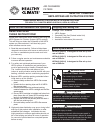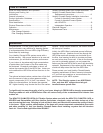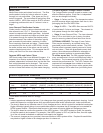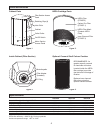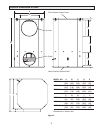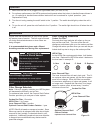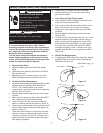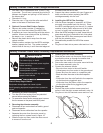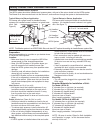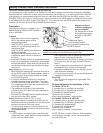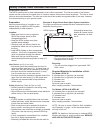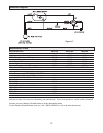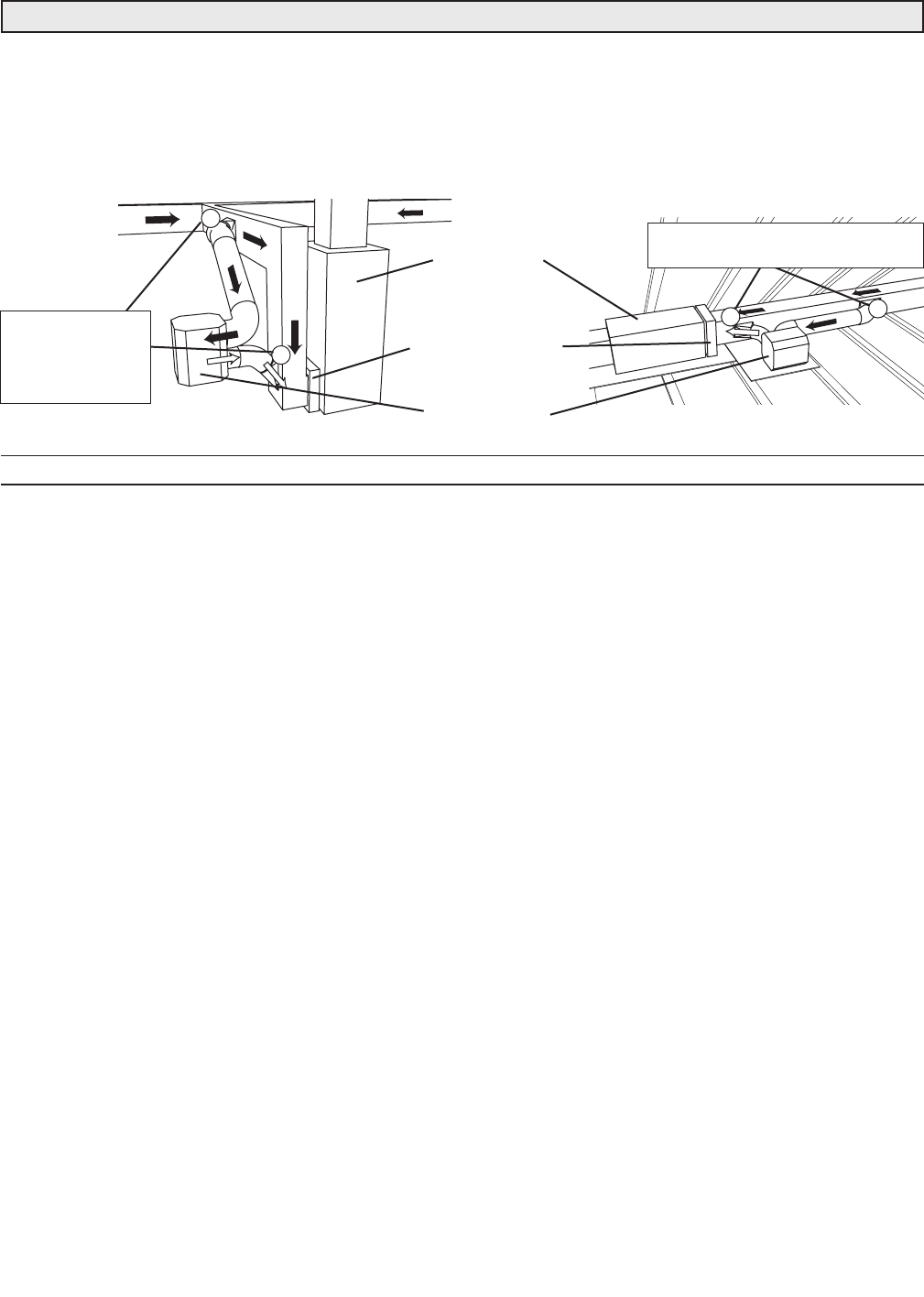
Typical Return to Return Application
For homes with horizontal forced air handler/furnace
systems. (Air handler/furnace is shown in an typical
attic. See figure 7.)
Typical Return to Return Application
For homes with upflow forced air handler/furnace
systems.(Air handler/furnace is shown in a typical base-
ment. See
Figure 6.)
9
Healthy Climate® Dealer Installation Instructions
Forced air handler/furnace systems:
The HEPA system should be installed as a bypass system, with part of the return ducted into the HEPA system.
The filtered air is then rerouted back into the return air, and continues through the system to be heated/cooled.
Figure 6.
Figure 7.
Preparation:
Here are some things to consider as you decide where
to install the HEPA system.
Location:
Make sure there is room to open the HEPA filter
access panel for filter changes/inspections.
Keep the HEPA system in a location where you
can still access the air handler/furnace filter.
Keep the HEPA system away from possible water
damage.
Vibration pads will reduce vibration for installations
where the unit is placed on the floor.
Install HEPA System on floor or suspended platform.
If the unit is suspended, screws must not penetrate
through the cabinet. Make sure that you have the
proper chains/straps/joists and equipment to keep
unit secure.
Inlet (Marked as ‘Air In’ on unit):
Inlet ducts should be installed upstream of any
humidifiers and be installed on the main return.
Inlet duct should be installed at least 8 ft. away
from the outlet duct on the main return.
Use a 45 degree takeoff to draw air from the main
return.
Outlet (Marked as ‘Clean Air Out’ on unit):
Outlet duct should be installed as close to the air
handler/furnace inlet as possible but not directly into
the return air elbow of the main return.
To reduce static pressure, install outlet with a 45
degree takeoff directly up-line from the return air elbow.
If the unit is being installed independently of any
other system, room diffusers are recommended to
help distribute airflow evenly in the occupied space.
Ducting:
If HEPA system is installed where inlet and outlet
•
•
•
•
•
•
•
•
•
•
•
•
collars face down, metal elbows must be connected
to both inlet and outlet collars.
Each connection must be sealed with aluminum
tape or mastic, including all take offs.
Installed duct runs should be as straight as possible
(if the duct runs are too long, reduced CFM may
result).
If duct is exposed to unconditioned air, externally
insulated flex duct is highly recommended.
Externally insulated flex duct can also be used for
noise reduction purposes
For best indoor air quality, do not use ductboard or
fiberglass inside of ducts.
Electricity:
The unit must be plugged into a grounded 120V,
60Hz outlet.
Required Materials for Installation of Unit:
For Model: HEPA-20
8” diameter flex or rigid duct (as required)
6” diameter flex or rigid duct (as required)
8” diameter 45 degree takeoff
6” diameter 45 degree takeoff
Aluminum tape or mastic
Misc. hanging materials - field provided
For Models: HEPA-40 & HEPA-60
10” diameter flex or rigid duct (as required)
8” diameter flex or rigid duct (as required)
10” diameter 45 degree takeoff
8” diameter 45 degree takeoff
Aluminum tape or mastic
Misc. hanging materials - field provided
NOTE: Be sure to review ‘Rules for Safe Installation
and Operation’ on page 1 of this document before
start-up of this unit.
•
•
•
•
•
•
A
A
B
B
Air Handler/
Furnace
Air Handler/
Furnace Filter
HEPA System
NOTE: This filtration system is an ADDITIONAL filter, and does NOT replace the existing air handler/furnace system filter.
Distance between
A and B should
be 8’ to 16’ for
best results
Distance between A and B should
be 8’ to 16’ for best results



